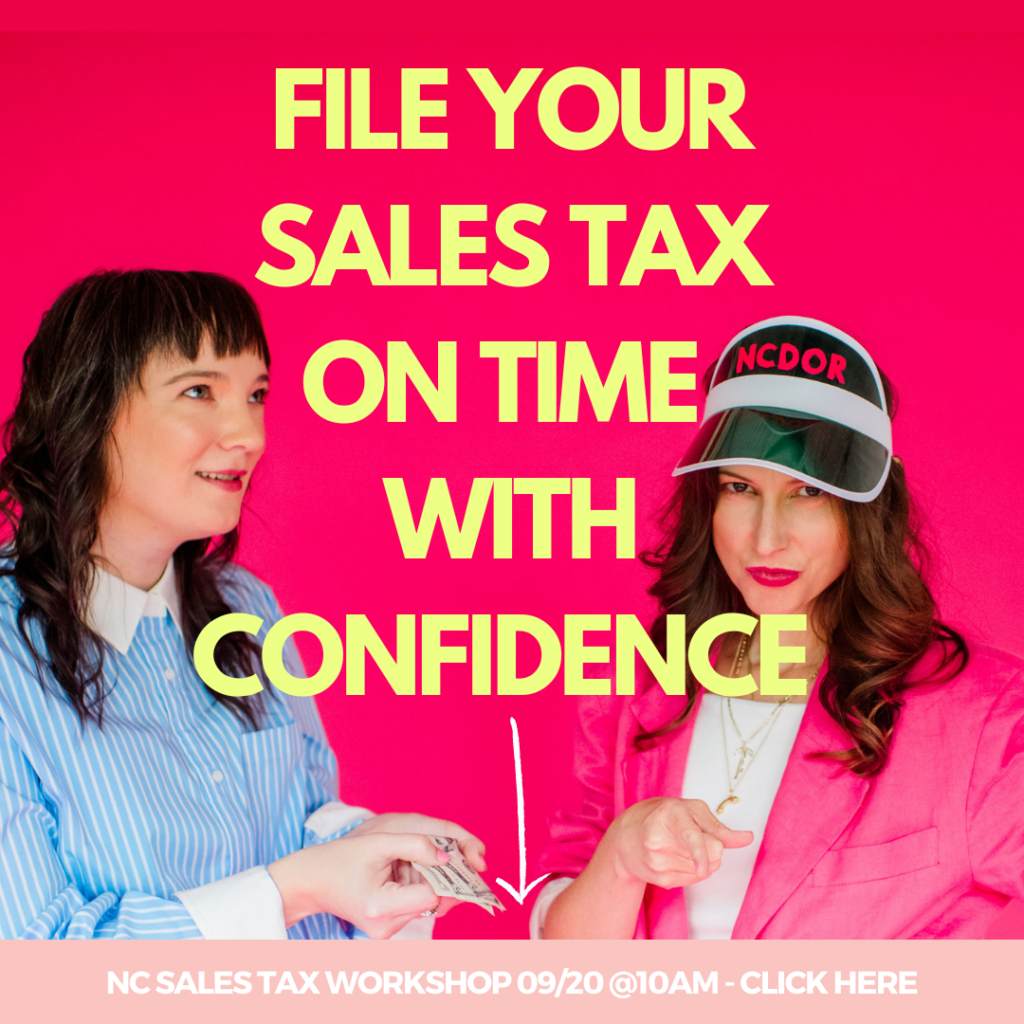The Blog
Let’s talk NC Sales Tax!

We’re talking all about SALES TAX. This is a topic it’s so complex! But it is something we always get asked about, so we thought we would try to break it down for y’all.
Today we are only talking about NORTH CAROLINA sales tax. If your business doesn’t live in NC or have nexus here (more on that in a minute), or if sales tax isn’t something that affects you, the “how to say sane” part of this blog will still help you.
Oh and don’t forget: Alisha Thomas is not a CPA or a lawyer. Tax laws change constantly, and everyone’s financial situation is different. This is not intended to be legal or financial advice, and you should consult your lawyer and CPA about your particular situation.
(My lawyer makes me say things like this.)
What is sales tax? And how does it work?
Sales tax is a tax applied only when you sell something. It’s a “consumption tax”, and it’s not income tax. If you are selling something (physical-ish), the state and the county make you charge a tax when you sell that thing. Then you have to pay that money to the state, with a report, on a date they determine. Honestly, it’s kinda like you are working for the government. You are collecting sales tax on their behalf.
Things to remember:
1. It has nothing to do with “income tax”
2. The percent of tax you charge varies based on where the “sale” happens
3. You are always taxing the end-user. This also means you wouldn’t tax someone you are selling wholesale to. They would charge sales tax when they resell the item to the end user.
4. If you sell a physical good, you MUST charge sales tax. It doesn’t matter if your business is an LLC, a S-Corp, a sole-prop, or if you only sell a small amount of goods.
5. If you sell products on sites like Etsy and Amazon they can collect and remit sales tax for you. Check on that.
Best practices for sales tax AKA how to stay sane:
1. Open a savings account for sales tax (especially if you are selling high-ticket items).
2. Try to use one point of sale (Shopify, Square, etc.)
3. Quickbooks does a great job of calculating and breaking down sales tax.
4. If you file monthly, set a calendar reminder for the 10th of every month to calculate your amount owed.
5. If you file quarterly, make that calendar reminder quarterly.
6. Make sure you keep sales receipts.
7. Make sure you keep receipts for things that you bought wholesale.
8. If you have a bookkeeper, give them Power of Attorney over your sales tax so that they can call and talk to the NCDOR about your account.
9. FILE AND PAY ON TIME AND ALWAYS DOUBLE CHECK YOUR NUMBERS AND TRANSACTION DETAILS.
Don’t mess around with sales tax, it’s easy to audit and penalties are high!
Still have questions? Of course you do—this stuff can be tricky!
We are offering an online NC Sales Tax Workshop on September 20th at 10AM – DETAILS HERE

Comments will load here
Be the first to comment